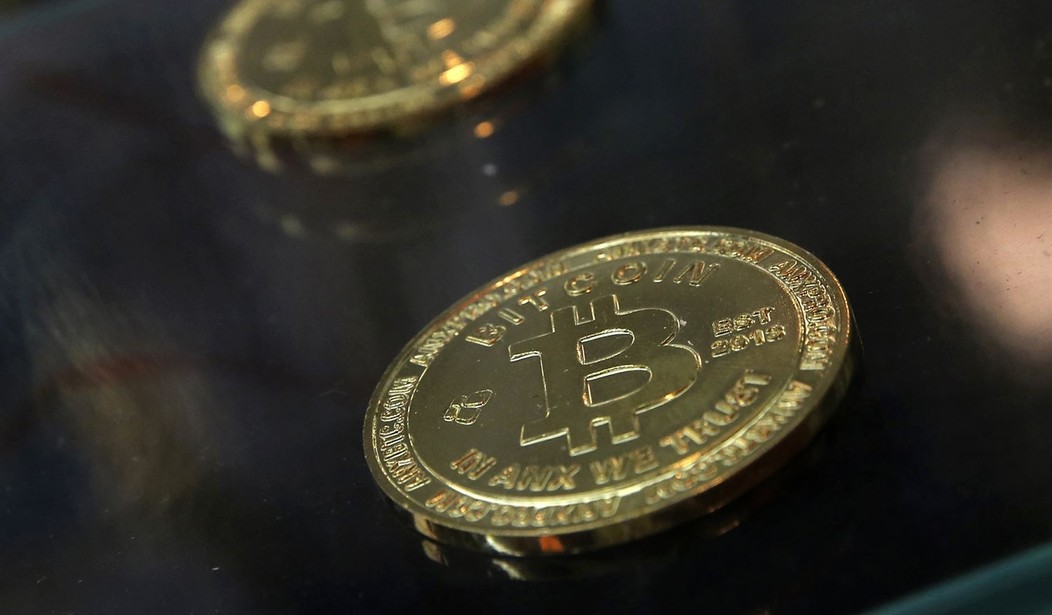It is not common that industries created specifically to escape government oversight seek regulation, but then it’s also not common that a foreign country, as opposed to domestic competitors, provides impetus for such a move.
But that is the state of affairs with regard to cryptocurrencies. Designed to facilitate financial transactions and reduce the ability of currency regulators to influence prices, the companies involved in this arena find themselves threatened by China.
It is entirely common for businesses located outside China to perceive it as a threat. It erects high tariffs, non-tariff barriers and other regulatory hurdles, according to a report from the White House Office of Trade and Manufacturing Policy.
It uses the ability to finance exports and combine state-owned enterprises to drive others out of the market. It uses debt traps– financing third-world countries in exchange for access to their natural resources and markets – to secure and control natural resources.
And most important, it acquires key technologies and intellectual property from other countries, including the United States, through an industrial policy that seeks to “’introduce, digest, absorb and re-innovate'"technology and intellectual property from around the world.”
It does this through “state-sponsored theft of intellectual property, cyber-enabled espionage and theft, evasion of U.S. export control laws and counterfeiting and piracy,” the report states. Our Director of National Intelligence calls China “the world’s most active and persistent perpetrators of economic espionage” – particularly in electronics, telecommunications, robotics, data services, pharmaceuticals, mobile phone services, satellite communications and business software.
Recommended
It also has moved to take over cryptocurrency markets and already has “mature capabilities and strong motives for performing a variety of attacks against Bitcoin,” a team of researchers at Princeton concluded.
Bitcoin, for instance, has no central governing structure. Its operation and maintenance tasks are performed by miners – those who certify the money is in the account. The system was designed so anyone could contribute computing power, be a miner and share in the profits from transactions. But, as of June 2018, 80 percent of Bitcoin’s mining was done by six large pools of miners– and five of those pools were controlled by the Chinese government.
The original plan was for no one to control more than 50 percent of Bitcoin mining. The Chinese control far more than that, which gives them the freedom to reject, approve or even reverse transactions. This, in turn, enables it to, among other things, launder money for drug cartels, which the Drug Enforcement Administration has suggested may be the case.
American firms have developed new applications, such as utility tokens, which are not mined and thus not vulnerable to attacks. But these are not enough to overcome the toxic climate the Chinese presence has created in the cryptocurrency space and its ability to undermine the market and scare away investment.
So far, the government response to this has been to dither over whether Bitcoin and other cryptocurrencies should be considered securities and regulated by the Securities and Exchange Commission.
The consensus is they are not, and it is time for the government to make that clear and find its regulatory voice elsewhere– one flexible enough to permit continued innovation but robust enough to counter the threat from China.
Without this, they fear, the Chinese could do to cryptocurrency and the economic growth it brings what they have done to other industry – impose Chinese standards and force the rest of the world to hand over its technology to comply.
As an example, according to the White House Trade Office report, the Chinese sometimes formulate their own national standards in strategic industries that deliberately differ from international standards. This makes it harder for foreign firms to compete in China’s domestic market and, in some cases, can “serve as a tool to pressure foreign companies to reveal their source code, encryption codes, and other technologies and IP.”
The Chinese also seek to co-opt corporate governance, the report found, by inserting Communist Party Committees within corporate charters and decision-making bodies and requiring foreign firms that wish to do business in China to place Communist Party employees in key executive positions.
China also requires foreign companies that compete with Communist Party-controlled firms to buy their raw materials at as much as twice the price domestic firms pay. In products that rely on rare-earth metals, such as wind turbines and LCD displays, that can make foreign-owned firms 50 percent to 60 percent more expensive than Chinese firms.
The point is the Chinese do not intend to play fair. They have built their economy by bending competitors to their considerable will. If cryptocurrencies are not protected, and soon, they will meet the same costly, innovation-crushing, industry-strangling fate.

























Join the conversation as a VIP Member